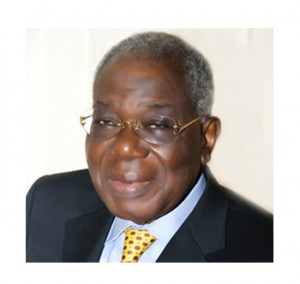Bi-Courtney Claims Vindicated by ICRC Report
 Bi-Courtney Highways Services Ltd has claimed that the report presented by report of the Infrastructure Concession Regulatory Commission (ICRC) justified the firm’s position on the Lagos-Ibadan Expressway.
Bi-Courtney Highways Services Ltd has claimed that the report presented by report of the Infrastructure Concession Regulatory Commission (ICRC) justified the firm’s position on the Lagos-Ibadan Expressway.
According to a statement issued by Bi-Courtney Highways Services Ltd, the report presented to President Goodluck Jonathan by Chief Ernest Shonekan, who heads the ICRC, concurs with its position on why it could not accomplish the concession on time.
It could be remembered that Bi-Courtney won the concession to reconstruct, develop and modernise the 105-kilometre expressway under a Build, Operate, and Transfer (DBOT) arrangement in 2009. The road has been used for 34 years now.
The concession agreement was however, on November 19, cancelled by the Federal Government, because the company breached the terms of the agreement with regard to the duration of reconstruction work.
In a recent development, Bi-Courtney Highways Services Ltd now claims, “the implementation of the project was delayed due to various issues that were not addressed by both parties prior to the execution of the contract.” This was the same statement contained in the 2011 annual report of the ICRC presented to the President last week.
The issues identified by ICRC are approval for the design of the road, securing the Right of Way, financial model, environmental, and social impact assessment.
On approval for the design of the road, the report point towards Clause 6.1 of the concession agreement identified the concessionaire as responsible for the preparation of the preliminary design for the grantor’s reconsideration and endorsement.
According to the report, May 10, 2011 was the approval day for the final design, two years after the concession agreement was signed.
“It is evident that the scope of the work was not fully documented and outline design provided before the concession was awarded,” said the report.
On the financial model, the commission discovered that the cost of the project as incorporated in the concession agreement was not based on the necessary studies.
The report reads, “Without an agreed design and scope of work based on the grantor’s performance and output standards, there cannot be an agreed fixed cost for the project.
“Without a financial model setting out the expected project costs and revenues, financing costs cannot be determined.
“The cost of the project as included in the concession agreement was not based on the necessary studies (e.g. traffic forecast) required.








